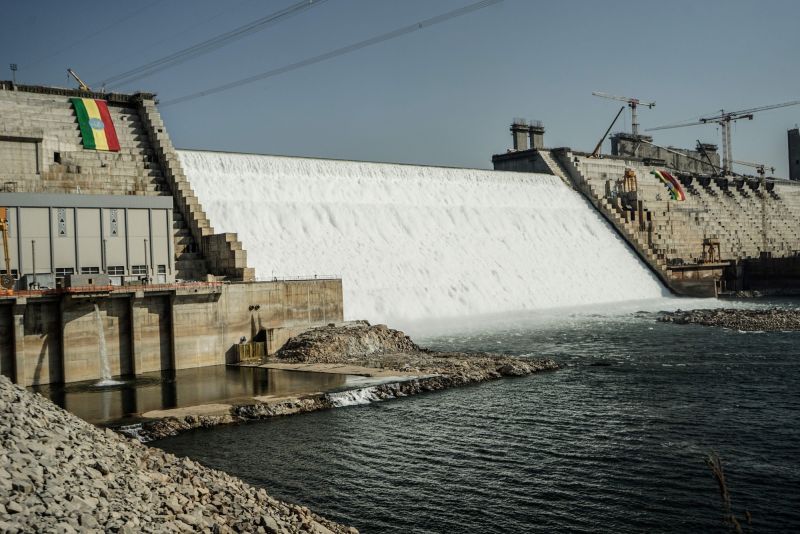Egypt is determined to do all it can to resolve the dispute with Ethiopia over the potential effect on its water share from a hydroelectric dam Addis Ababa is building on the Nile - President Abdel

President Abdel Fattah El Sisi said Egypt is determined to do all it can to resolve the dispute with Ethiopia over the potential effect on its water share from a hydroelectric dam Addis Ababa is building on the Nile.
Cairo has long complained that the dam formally known as the Grand Ethiopian Renaissance Dam, or Gerd, would reduce its share of the Nile waters, on which it depends for almost all its freshwater needs.
That would devastate its vital agriculture sector, disrupting its delicate food balance and putting millions out of work.
Realizing the gravity of this issue, Egypt is renewing its commitment to settling the dam case in a manner that will realize the interests of all parties.
Ethiopia's Abiy says Egypt calls on the international community to reinforce efforts to achieve this just aim.
Despite Egypt's fears, Ethiopia has long maintained that the dam was unlikely to hurt the interests of downstream Egypt and Sudan. Still, it has also refused to enter a legally binding agreement on the dam's operation or agree on a mechanism to deal with future droughts.
The nearly complete $5-billion dam is being built on the Blue Nile, the river's main tributary, which contributes most of the water reaching Egypt.
Egypt's President Says Egypt Is Determined To Resolve Dispute With Ethiopia
It enters Sudan from the east before it joins the White Nile in Sudan's capital, Khartoum, and travels north to Egypt.
Ethiopia says the power generated by the dam is key to its development, lifting millions of its people from poverty and allowing the Horn of Africa nation to export electricity to some of its neighbors.
President El Sisi, in his Sunday comments, spoke of Egypt's predicament as it struggles to deal with what he called water and food security and climate change.
He said Egypt is one of the world's driest countries and depends almost exclusively on the Nile for its renewable water sources. Explaining that 80 percent of the river's water goes to agriculture.
He said, "In light of this unique water scarcity, Egypt's water resources are no longer meeting the needs of its people despite the implementation of water conservation policies and the repeated use of irrigation water."
Climate change has also affected Egypt's vital agriculture sector.
The Egyptian leader said Cairo wanted more cooperation between the Nile basin nations rather than unilateral moves and uncooperative competition that leave limited and inadequate results in both size and scope.
Egypt's delicate food balance has become more apparent since the Russia-Ukraine war halted its wheat imports from the two nations, which normally account for 80 percent of the country's wheat imports.


